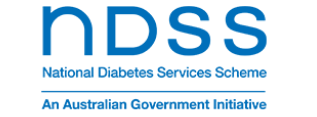Learn about key roles and responsibilities of the school diabetes team, including legal rights and obligations.
It takes a team to support a student with type 1 diabetes at school. When schools, families, and health professionals work together, they can help the student fully participate in all aspects of school life.
Key members of a student’s diabetes team
Click on the tabs to watch videos and learn how each team member plays an important role in supporting the student with their diabetes at school.
Student
Role of the studentHealth Professional
Role of health professionalsPrincipal
Role of the principalUnderstanding the law
Duty of Care: Schools are legally required to keep all students safe, including those who need medical support during the school day.
Medicines and poisons laws: Learn what the law says about insulin at school, including who can give it, and under what conditions.
Consent laws: Understand consent laws for supporting students with type 1 diabetes at school, including who must give it, what it covers, and when it needs updating.
Reasonable adjustments: Schools must make reasonable changes and adjustments to support students in managing their type 1 diabetes during the school day.
Anti-discrimination laws: Students with disabilities, including those with type 1 diabetes, are protected by law from discrimination at school.
Advocating for your child: You have the right to request reasonable adjustments for your child, and using a collaborative approach with the school is key.



